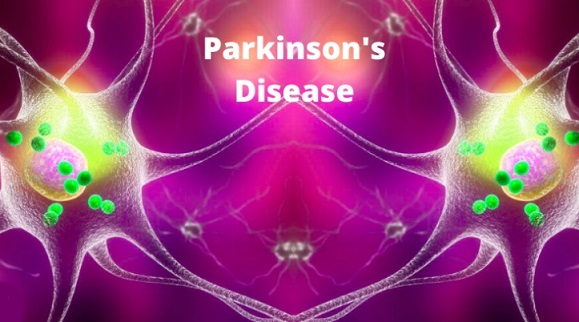Exposure to Influenza Viruses H1N1 and H3N2 Increases Risk of Parkinson’s Disease!
Nikhil Prasad Fact checked by:Thailand Medical News Team Feb 23, 2025 1 month, 2 weeks, 6 days, 4 hours, 15 minutes ago
Medical News: Parkinson's disease (PD) is a progressive neurological disorder that affects movement, leading to symptoms such as tremors, stiffness, and difficulty with balance and coordination. While the exact cause of PD remains unknown, both genetic and environmental factors are believed to contribute to its development. Recent research has highlighted a potential link between exposure to certain influenza viruses, specifically H1N1 and H3N2 strains, and an increased risk of developing Parkinson's disease.
 Exposure to Influenza Viruses H1N1 and H3N2 Increases Risk of Parkinson’s Disease!
Historical Context: The 1918 Influenza Pandemic
Exposure to Influenza Viruses H1N1 and H3N2 Increases Risk of Parkinson’s Disease!
Historical Context: The 1918 Influenza Pandemic
The connection between influenza and Parkinson's disease dates back to the 1918 Spanish flu pandemic. Studies have shown that individuals born during this period had a two- to three-fold increased risk of developing PD later in life compared to those born before 1888 or after 1924. This observation suggests that early-life exposure to the H1N1 influenza virus may have long-term neurological consequences.
Recent Research Findings
In a study published in 2018, researchers investigated the effects of the H1N1 influenza virus on mice. The study found that mice infected with the H1N1 strain experienced a 20% greater loss of dopamine-producing brain cells when exposed to a specific toxin known to damage these cells. Interestingly, this increased loss was mitigated when the mice were vaccinated against the flu, indicating a protective effect of the vaccine.
Another study explored the potential role of the H1N1 influenza virus in the development of Parkinson's disease. Researchers discovered that while the H1N1 virus did not directly enter the central nervous system, it did induce an inflammatory response in the brain's basal ganglia region. This inflammation was characterized by an increase in the number and size of microglia, the primary immune cells of the brain, suggesting that the body's immune response to the virus could contribute to neuronal damage over time.
Mechanisms Linking Influenza to Parkinson's Disease
The exact mechanisms by which influenza viruses may increase the risk of Parkinson's disease are still under investigation. One prevailing theory is that certain strains of the influenza virus can trigger a strong immune response, leading to the release of cytokines and chemokines - molecules that promote inflammation. These inflammatory molecules can cross the blood-brain barrier, activating microglia and potentially leading to chronic neuroinflammation. Over time, this persistent inflammation may result in the degeneration of dopamine-producing neurons, a hallmark of Parkinson's disease.
Additionally, some influenza viruses have been shown to directly infect neurons. For instance, certain strains can enter the nervous system and induce Parkinsonian pathology in animal models. This direct infection can lead to mitochondrial dysfunction, endoplasmic reticulum stress, and impaired autophagy - cellular processes crucial for neuron health and survival. Disruption of these processes can make neurons more susceptible to degeneration.
Implications for Public Health
Understanding the potential link between influenza infections and Parkinson's disease underscores the importance of preventive measures, such as vaccination. While more research is needed to establish a definitive causal relationship, these findings suggest that reducing the incidence of influenza infections through vaccination could potentially lower the risk of developing Parkinson's disease later in life. Moreover, during pandemics caused by respiratory viruses, healthcare systems should be prepared for a possible increase in Parkinson's disease cases in the ensuing decades.
Conclusion
The association between exposure to H1N1 and H3N2 influenza viruses and an increased risk of Parkinson's disease highlights the complex interplay between environmental factors and neurodegenerative disorders. Historical data from the 1918 Spanish flu pandemic, combined with recent animal studies, suggest that influenza infections may have long-term neurological consequences. The potential mechanisms involve both direct viral invasion of the nervous system and indirect effects through immune-mediated inflammation. These insights emphasize the importance of preventive healthcare measures, such as influenza vaccination, not only to protect against immediate illness but also to potentially reduce the risk of long-term neurological complications. As research continues to unravel the connections between viral infections and neurodegeneration, public health strategies must adapt to incorporate these findings, aiming to mitigate the future burden of diseases like Parkinson's.
References:
https://www.prd-journal.com/article/S1353-8020(10)00144-6/abstract
https://journals.sagepub.com/doi/full/10.3233/JPD-202279
https://www.elsevier.es/en-revista-neurologia-english-edition--495-avance-resumen-microorganisms-associated-with-increased-risk-S2173580822000542
https://www.frontiersin.org/journals/neurology/articles/10.3389/fneur.2020.00995/full
https://www.frontiersin.org/journals/cellular-neuroscience/articles/10.3389/fncel.2021.643650/full
https://www.cureus.com/articles/147436-exploring-the-correlation-between-influenza-a-virus-h3n2-infections-and-neurological-manifestations-a-scoping-review#!/
https://journals.lww.com/inpj/fulltext/2011/20020/the_neuropsychiatric_aspects_of_influenza_swine.4.aspx
https://link.springer.com/article/10.1007/s00702-022-02536-y
https://www.sciencedirect.com/science/article/pii/S0925443908001567
https://jamanetwork.com/journals/jamaneurology/fullarticle/2785029#google_vignette
https://www.nature.com/articles/s41531-017-0019-z
For the latest Influenza News, keep on logging to Thailand
Medical News.
Read Also:
https://www.thailandmedical.news/news/how-influenza-a-virus-manipulates-host-metabolism-for-faster-replication
https://www.thailandmedical.news/news/breaking-gut-molecule-indole-3-propionic-acid-ipa-shows-promise-in-fighting-all-types-of-influenzas
https://www.thailandmedical.news/news/how-neurotropic-viruses-such-as-influenza-hiv-herpes-affect-the-human-brain-to-cause-neuropsychiatric-disorders
https://www.thailandmedical.news/articles/influenza-or-flu
https://www.thailandmedical.news/pages/thailand_doctors_listings
